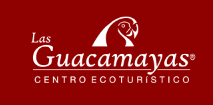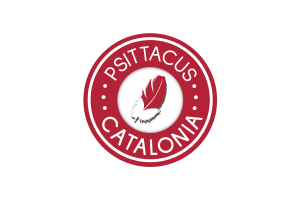PROYECTO
ARA MACAO
CYANOPTERA
ARA MACAO
CYANOPTERA
Colaboración con la «Reserva las guacamayas» ubicada en la Selva Lancadona (Chiapas-México), con el objetivo de apoyar su actividad de potenciación de la poblaciones locales de esta subespecie y mejorar sus resultados de cría en cautividad.
ÁMBITO DEL PROYECTO: Avicultura y conservación
ENTIDADES COLABORADORAS
LUGAR DE REALIZACIÓN DEL
PROYECTO
PROYECTO
PROPUESTA
Octubre de 2021
Octubre de 2021
Reserva Las Guacamayas. Zona de
amortiguamiento de la Reserva de Biosfera de
Montes Azules
amortiguamiento de la Reserva de Biosfera de
Montes Azules
PUBLICACIÓN
(pendiente)
(pendiente)
LUGAR DE REALIZACIÓN DEL PROYECTO
Reserva Las Guacamayas. Zona de amortiguamiento de la Reserva de Biosfera de Montes Azules
PROPUESTA
Octubre de 2021
PUBLICACIÓN
(pendiente)
(pendiente)
ESTADO DEL PROYECTO
ESTADO DEL PROYECTO
1
Propuesta a confirmar
2
Análisis preliminares
3
Planificación y diseño
4
Realización
5
Análisis e interpretación de resultados
6
Publicación de resultados
1
Propuesta a confirmar
2
Análisis preliminares
3
Planificación y diseño
4
Realizacións
5
Análisis e interpretación de resultados
6
Publicación de resultados
ANTECEDENTES
La cría en cautividad, así como la cría manual de los pichones excedentarios de los nidos de los ejemplares silvestres, ha permitido a esta comunidad reintroducir un número importante de ejemplares de esta subespecie amenazada a la Selva Lancandona. Esto ha permitido incrementar el número de ejemplares existentes y ha mejorado el estatus de su población en general.
Este tipo de iniciativas nacidas en el propio territorio son especialmente valiosas y requieren del soporte de entidades como la Fundación Psittacus.
Este tipo de iniciativas nacidas en el propio territorio son especialmente valiosas y requieren del soporte de entidades como la Fundación Psittacus.
OBJETIVOS
Este proyecto pretende facilitar y mejorar los resultados del programa de cría en cautividad, así como del programa de cría manual de los pollos extraídos de los nidos.
RESULTADOS ESPERADOS
- Incremento del número de ejemplares obtenidos mediante el programa de cría en cautividad.
- Mejora en la viabilidad de los polluelos extraídos de los nidos.
- Mejora en el porcentaje de polluelos finalmente devueltos a la selva.
PLANTEAMIENTO
A instancias de la Fundación Psittacus y financiado por la misma, Psittacus Catalonia manda gratuitamente a la Reserva las Guacamayas, piensos completos para las etapas de mantenimiento y cría de los ejemplares adultos del centro; así como papillas para la cría manual de los polluelos nacidos en el centro y de los que han sido extraídos de los nidos. La práctica de la extracción y cría manual del tercer polluelo de cada nido (si lo hay) posibilita su supervivencia y su futuro retorno al medio. La práctica totalidad de terceros polluelos mueren en los nidos. Además, también instancias de la Fundación Psittacus, el personal especializado de Psittacus Catalonia asesora a los cuidadores de la Reserva las Guacamayas en la correcta aplicación de los alimentos suministrados.
VALORACIÓN GENERAL
En 2022 los ataques de las abejas africanas a los nidos de las guacamayas, ha supuesto la muerte de la mayor parte de los pichones de los nidos monitorizados. Habrá que esperar a la temporada de cría de 2023 para poder valorar las repercusiones del proyecto.

